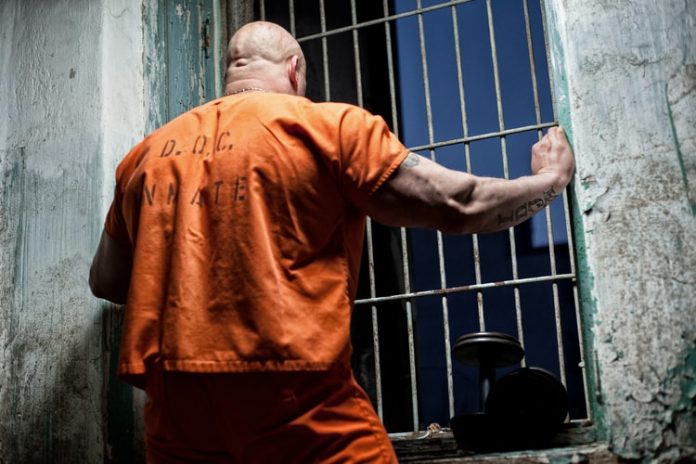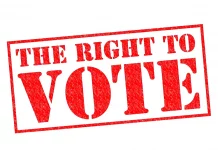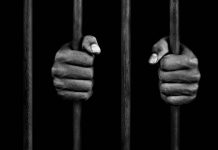This article is written by Hrithik Manchanda, from Manav Rachna University, Faridabad. This article deals with the laws about the background of “the right to vote for prisoners” as per the Indian Constitution and also puts a light on the constitutional validity of Section 62(5) of the Representation of the People’s Act with the help of various judgments.
Table of Contents
Introduction
India has been characterized as the biggest democracy in the world because of the colossal nature of the elections held in the country. At the general election, an electorate of millions goes to the poll to elect members for the Lok Sabha, State legislative assembly, and the legislature of the union territories. Free and fair elections have been held to be a basic feature of the Constitution.
Why are elections celebrated as a festival in India? Elections are celebrated in India as any other important festival and there are examples where even at the time of the peak of the pandemic the elections and rallies were being practised like any other usual day. In the process of the right to vote, elections are the cherished privilege of a citizen to participate in the electoral processes which place the people in power.
Further, the party who wins the elections forms the Government and runs the same for a respective period. Once the tenure of the government is over the process of elections takes place again and again the citizens get the right to practice their “right to vote “ which forms the basic pillar of democracy. Each and every citizen of India is guaranteed a right which is the “the right to vote” except those who are exempted from casting their vote through the process of “Elections”. Have you ever wondered about the voting rights of the people who are in prison? As per the Indian laws, people who are in prison are not allowed to vote that we will understand through this article and will give a comparison to the countries where voting rights for prisoners are permitted.
Right to vote under the Representation of the Peoples Act, 1951
A record namely, ‘Prisoner Statistics India, 2018’ which is usually maintained by the National Crime Branch shows a total of 4,68,094 prisoners out of which 3,25,600 are those who are undertrials and 1,40,000 are convicts lodged across 1,339 prisons in India. Now the question that hits this research is who is defined as a prisoner? Section 3 of the Prisoner Security Act, 1894 defines a prisoner as any person who is kept under custody in jail or prison because he/she committed any act which is prohibited by law of land. A prisoner in simple words is a person who is kept in the prison for either being suspected of any crime committed by him or is undergoing punishment for any unlawful act.
The right to vote is further mentioned and delighted under the Representation Of the Peoples Act. This Act aims to provide the norms, rules, and regulations of the free and fair elections to the respective houses of parliament and to the houses of the legislature of each state and also tells about the disqualifications and qualifications for the membership of those houses and further mentions about the corrupt offences and practices in connection with the offences which are committed by some of the politicians which may include bribery or distribution of liquor, etc against the votes. The said Act also clarifies the disputes or confusions arising out or in connection with such elections.
The right to vote is mentioned in Section 62 of the Representation of the People’s Act which basically talks about the people who are exempted from this process of election and are deprived of this “right to vote”. In the first clause, it talks about the general rule of the voting that the person, who is entered in the electoral roll of any constituency is entitled to vote in that constituency only.
The next clause (b) where it talks about the ineligibility of the candidates to vote for the grounds mentioned in Section 16 of the Act. The next clause (c) talks about those voters who intend to vote in more than one constituency which is not permitted by law and if any voter votes in more than one constituency then his vote is considered void. Next, clause (4) says that a voter cannot vote more than once in the respective constituency and if he votes twice then his vote shall stand void.
As per clause (5), no person who is confined in prison, or in the lawful custody of police shall be allowed to vote, and in the proviso of this section which states that the right to vote should not be deprived to the person who is in custody for preventive detention and he must have the right to cast his vote.
Right to vote: constitutional or a fundamental right
The question that comes to mind is that is every citizen of this country guaranteed a right to vote? As per the Supreme court of India, in the case NP ponnuswami v. returning officer, it was declared that the right to vote or stand as a candidate for election is not a civil right but a creature of statute or special law and must be subject to the limitations imposed by it. Since the right to vote is neither common law nor a fundamental right. It is also not considered as a statutory right but much of a substantive right. It is important to mention that the right to vote is not a gift of the legislation but has been flowing from the constitution which is mentioned under Article 326 of the Indian Constitution. And as a result, it is not considered as any fundamental right.
Anukul Chandra Pradhan v. Union of India & Ors. (1997 Judgement )
In this case also known as (the 1997 judgement), the court upheld the validity of section 62 of the Representation of the People’s Act in two areas. One, it is not a right which is conferred as per Article 14 of the Indian Constitution and the second is that the right to vote is subject to the limitations which are imposed by the legislature and this right to vote cannot make a fundamental right and the court also mentioned about the basic constitutionality of Section 62(5) of the Representation of the public’s act. So as a result, the court expressed that the denial of the right to vote for prisoners is not a violation of Article 21 and Article 14 of the Indian constitution.
Stand of the Delhi High Court on Praveen Kumar Chaudhary v. Election Commission & Ors.
The petitioner, in this case, demanded the quashing of Section 62(5) of the Representation of the People’s Act on the grounds that it is violative of the basic structure of the Indian constitution. Further, the petitioners also demanded the assurance that the prisoners should get proper facilities and amenities so that they can cast their vote from jail in the process of elections. Through this judgment, the Supreme Court explained and cited the infrastructural problems and violations in allowing the prisoners to vote.
The contention of the parties
The petitioners in their contention said that there is no distinction or classification between the person who is in jail or the one who has been granted bail or is out of jail. Furthermore, the petitioner mentioned that as per Section 62(5) of the Act, a person whose name is not mentioned in the electoral roll is not ceased to be an elector which in simple words means that the person can contest the election if he is jail but he cannot cast his vote if he is in jail. The petitioners also submitted that this kind of classification is in violation of Article 14 and the basic structure of the Indian Constitution.
View of the court
The Hon’ble Supreme Court held that the right to vote is neither a constitutional right nor a fundamental right, it is a common-law right that is conferred by the statute. Further, the court mentioned that “the right to vote” is subjected to some of the limitations as well which are mentioned under Section 62(5) of the Representation of the People’s Act.
The court also relied on the judgment of S. Radhakrishnan vs. Union of India & Ors and held that Section 62(5) of the said Act is constitutionally valid and the right to vote is not a fundamental right but is a statutory right and can be made limited by statute.
Even in recent times, public interest litigation was filed by three law students in which they were seeking the right to vote for prisoners. The contentions of the petitioners were that there should be a distinction between those who are charged with murder or with any of the heinous crime to the prisoners who commit minor offences like theft. But the court in its observation stated the provision of Section 62(5) of the Representation of the People’s Act and the constitutionality of the “Right To Vote”. Along with that, the court also referred to the judgement of Anukul Chandra Pradhan v. Union of India & Ors and on the basis of the same, the court dismissed the petition.
Right to vote for prisoners in other countries
In other countries like Slovenia, Ireland where the government gives the right to all its prisoners to vote and as per a report of BBC (2012) which mentions that about 18 European Countries. It gives its prisoners the Right to Vote and there are many more examples that give their prisoners the right to vote of which the Irish government was one of the leading examples.
Wherein 2006, the Irish government without any demand from public outcry or without any media controversy gave them (the prisoners) the right to cast their vote in the elections. Whereas, on the other side there are also some countries in which the citizen loses their rights even when they are released from the prisons and of which Italy and the United States are big examples.
Considering those examples of countries that give their prisoners the right to vote is completely monotonous and absurd. Like the prison, itself is not a punishment in its physical sense. Instead, the people who are behind those prisons’ are denied liberty for the betterment of their behaviour and the main objective of these prisons are to prepare the prisoner to rehabilitate by separating them from the society and prepare them to become the part of the society again and at this point by giving the right to any of the prisoner would fail the complete cause of the whole regeneration process.
Conclusion
Denial of a right to vote will not push back any person from society just like any other right. A prisoner is a person who is kept in the prison for either being suspected of any crime committed by him or is undergoing punishment for any unlawful act. Further before coming to any conclusion about whether the prisoners should be given a chance to vote in the process of elections or not it is important to first understand the psychology of a prisoner. Being a defaulter at upholding the rules and norms of the law, goes without saying what kind of choices a prisoner (or the majority of them) would make for the betterment of society. Moreover, what kind of choice can you expect that a murderer or a rapist, or a thief will choose their representative. Thus, Section 62(5) of the RPA correctly restricts the prisoners to vote in the elections and needs no amendment.
References
- https://indiankanoon.org/doc/1620503/
- https://indiankanoon.org/doc/26852/
- https://indiankanoon.org/doc/30249677/
- https://indiankanoon.org/doc/484561/
- http://docs.manupatra.in/newsline/articles/Upload/1AE2DCAF-EAAD-4028-BDB8-5A26CF3CDDF1.pdf
- https://timesofindia.indiatimes.com/india/should-prisoners-have-a-right-to-vote/articleshow/74111590.cms
- https://www.constitutionofindia.net/constitution_of_india/fundamental_rights/articles/Article%2021
LawSikho has created a telegram group for exchanging legal knowledge, referrals, and various opportunities. You can click on this link and join:
 Serato DJ Crack 2025Serato DJ PRO Crack
Serato DJ Crack 2025Serato DJ PRO Crack











 Allow notifications
Allow notifications


